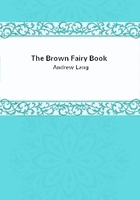Bacon was born in London in 1561. His progenitors and relatives held high office in the state, and his father was Keeper of the Great Seal to Queen Elizabeth. He in his turn, having been educated to follow the same vocation, at once devoted himself to the business of the State, and entered upon an important career. He early displayed great talent, and at the age of nineteen he produced a work on the condition of Europe (De statu Europ?). Bacon in his youth attached himself to the Earl of Essex, the favourite of Elizabeth, through whose support he, who as a younger son had to see his paternal estate pass to his elder brother, soon attained to better circumstances, and was elevated to a higher position. Bacon, however, sullied his fame by the utmost ingratitude and faithlessness towards his protector; for he is accused of having been prevailed upon by the enemies of the Earl after his fall to charge him publicly with High Treason. Under James I., the father of Charles I., who was beheaded, a weak man, to whom he recommended himself by his work De augmentis scientiarum, he received the most honourable offices of state by attaching himself to Buckingham: he was made Keeper of the Great Seal, Lord Chancellor of England, Baron Verulam. He likewise made a rich marriage, though he soon squandered all his means, and high though his position was, he stooped to intrigues and was guilty of accepting bribes in the most barefaced manner. Thereby he brought upon himself the ill-will both of people and of nobles, so that he was prosecuted, and his case was tried before Parliament. He was fined L40,000, thrown into the Tower, and his name was struck out of the list of peers; during the trial and while he was in prison he showed the greatest weakness of character. He was, however, liberated from prison, and his trial was annulled, owing to the even greater hatred of the king and his minister Buckingham, under whose administration Bacon had filled these offices, and whose victim he appeared to have been; for he fell earlier than his comrade Buckingham, and was deserted and condemned by him. It was not so much his innocence as the fact that those who ruined him had made themselves hated to an equal degree through their rule, that caused the hatred and indignation against Bacon to be somewhat mitigated. But he neither recovered his own sense of self-respect nor the personal esteem of others, which he had lost through his former conduct. He retired into private life, lived in poverty, had to beg sustenance from the king, occupied himself during the remainder of his life with science only, and died in 1626. (1)Since Bacon has ever been esteemed as the man who directed knowledge to its true source, to experience, he is, in fact, the special leader and representative of what is in England called Philosophy, and beyond which the English have not yet advanced. For they appear to constitute that people in Europe which, limited to the understanding of actuality, is destined, like the class of shopkeepers and workmen in the State, to live always immersed in matter, and to have actuality but not reason as object. Bacon won great praise by showing how attention is to be paid to the outward and inward manifestations of Nature, and the esteem in which his name is thus held is greater than can be ascribed directly to his merit. It has become the universal tendency of the time and of the English mode of reasoning, to proceed from facts, and to judge in accordance with them. Because Bacon gave expression to the tendency, and men require to have a leader and originator for any particular manner of thinking, he is credited with having given to knowledge this impulse towards experimental philosophy generally. But many cultured men have spoken and thought regarding what concerns and interests mankind, regarding state affairs, mind, heart, external nature, &c., in accordance with experience and in accordance with a cultured knowledge of the world. Bacon was just such a cultured man of the world, who had seen life in its great relations, had engaged in state affairs, had dealt practically with actual life, had observed men, their circumstances and relations, and had worked with them as cultured, reflecting, and, we may even say, philosophical men of the world. He thus did not escape the corruption of those who stood at the helm of the state. With all the depravity of his character he was a man of mind and clear perception; he did not, however, possess the power of reasoning through thoughts and notions that are universal. We do not find in him a methodical or scientific manner of regarding things, but only the external reasoning of a man of the world. Knowledge of the world he possessed in the highest degree: “rich imagination, powerful wit, and the penetrating wisdom which he displays upon that most interesting of all subjects, commonly called the world. This last appears to us to have been the characteristical quality of Bacon’s genius. . . It was men rather than things that he had studied, the mistakes of philosophers rather than the errors of philosophy. In fact he was no lover of abstract reasoning;” and although it pertains to philosophy, we find as little as possible of it in him. “His writings are indeed full of refined and most acute observations, but it seldom requires any effort on our part to apprehend their wisdom.” Hence mottoes are often derived from him.
同类推荐
热门推荐
常青藤教育的99条法则
《常青藤教育的99个成功法则》:常青藤教育,美国上层精英延续百年的教育,常青藤素质,当代世界精英走向成功的素质,哈佛大学、耶鲁大学、普林斯顿大学、哥伦比亚大学、康奈尔大学、布朗大学、达特茅斯学院、宾夕法尼亚大学八所世界公认的一流大学组成了辉煌的“常青藤”久负盛誉的高水平教育使之成为培养精英的聚集地。听说爱情曾来过(全集)
因为我爱你,即使自己再渺小,也愿用仅有的光去照亮你的心。他是香榭丽舍酒店真正的继承人,当他再次回到那里,寻找杀父之仇的真相,面对酒店内部新老势力的终极博弈,爱情也让他感到迷茫,抉择之间,他何去何从?神秘女子白慕薇,从瑞士一路追随陆泽磊回国,千里追求,她的出现,为的只是初恋情怀,还是香榭丽舍背后隐藏的真相?酒店管理层大换血的背后,隐藏着怎样的情感秘密?八年后的香榭丽舍,奢华依旧、暗藏玄机。乘人之危,同业竞争白热化,酒店风云再起,内忧外患加剧!年轻掌门人是否能撑起香榭丽舍一片天空?天师传人之争:真龙气
民初,张天师携子南下寻找真龙气,引出一场千古未有的奇事。民国第一相士袁度,为何隐居江南小镇?化外奇人蓝云天,为何踏足中原?天师传人之争,六十三代天师究竟谁来执掌?天下龙脉精华,真龙气究竟在何处?谜底即将揭晓,更多精彩,尽在《真龙气》。温故(之五)
人类始终生活在历史的投影里。这投影,既非上帝的恩赐,也不是什么神做的手脚,而是源自人类将自己与动物区分开来的那个重要特征——记忆。历史的投影有过远有近,远的如原始祖先迈向文明渺然足迹,所的如昨天刚刚发生的事情。时间之流,不舍昼夜,不仅把已经发生的,而且终将把正在发生的以及行将发生的一切,都裹挟而去,统统融入历史的投影。最早意识到这投影价值的,不是别人,正是我们的至圣先师孔夫子,他老人家一句“温故而知新”,虽平白如话,却如醍醐灌顶。历史既是人类活动的归宿,更是面向未来的智慧之源。谈到历史与现实的关系,英国作家奥威尔的表述则更加直截了当,他说:谁掌握了历史,谁就掌握了现在。















